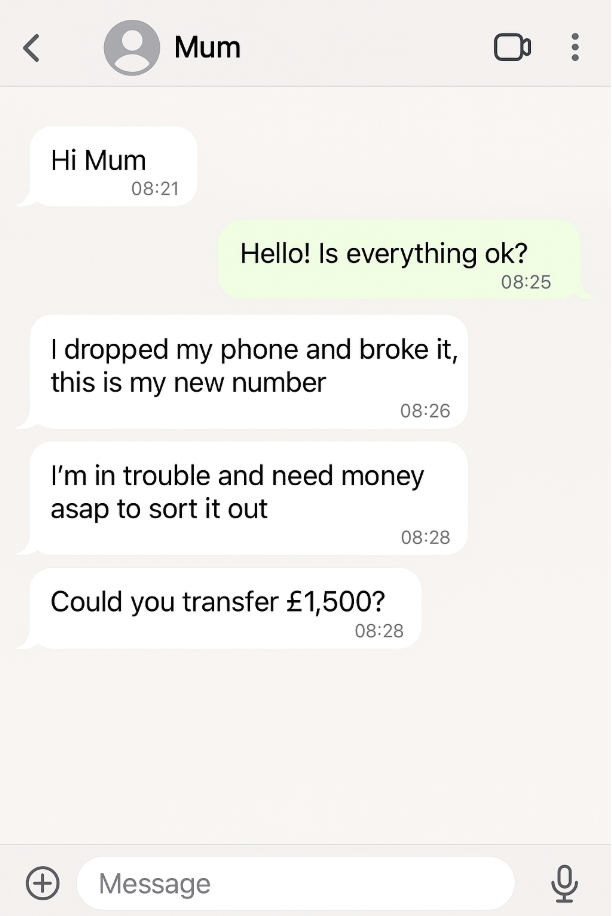Scammers never take a summer holiday and staying informed is your best defence. Whether it’s a message that doesn’t feel quite right or an offer that seems too good to be true, knowing what to look out for can help protect your money and personal information.
Here’s our latest round-up of the scams doing the rounds this June, and how to avoid falling for them.
Winter fuel allowance scams are heating up
With changes to the Winter Fuel Payment announced, scammers are seizing the opportunity to trick people – especially pensioners- into handing over sensitive information. Some are posing as government officials or energy support teams, claiming you need to “reapply” or “verify your bank details” to receive the payment. But the real goal is to steal your personal and financial information.
If you’re contacted unexpectedly about fuel payments, don’t click on any links or share any details. Always go directly to GOV.UK for the most accurate, up-to-date information.
Tickets scams targeting festivalgoers and fans
With summer events and tours in full swing, ticket fraud is also on the rise. Scammers are using fake websites, unofficial resale platforms, and social media ads to lure buyers with offers that seem too good to be true. Victims often pay in full but never receive a ticket, or get turned away at the gate with a fake one.
Stick to trusted ticket sellers and official resale platforms. If someone asks you to pay by bank transfer, walk away – it’s a red flag.
'Hi Mum' AI voicecloning scams
Scammers are targeting parents by pretending to be their children in distress. These messages often come via WhatsApp or phone, claiming the child has lost their phone, needs help, or is in trouble – and urging the parent to send money straight away.

What’s new is the use of AI VOICE cloning, making these fake calls frighteningly convincing. Some victims have lost thousands of pounds.
To protect yourself, agree a secret phrase or “safe word” with your loved ones – but don’t store it on your phone or computer. The best way to stay safe is to never transfer money until you’ve spoken to them directly on a known number and confirmed it’s really them.
Fake 'doctors' selling bogus health products on social media
Scammers on platforms like Facebook and Instagram are pretending to be medical professionals to promote “miracle” creams, diabetes patches, and weight-loss products.
Some even impersonate real dermatologists or claim fake agency endorsements. Victims either never receive the product, end up with something completely ineffective (or potentially dangerous), or unknowingly hand over their personal data.
If you see one of these ads, be cautious – check the seller’s credentials, look for genuine reviews, and never share your payment details without doing your homework.
"£800-a-day" job scams targeting students
Students are being targeted with texts or calls offering remote roles that sound too good to be true, like getting paid hundreds a day just to like TikTok posts. But there’s a catch: applicants are asked to pay a “training fee” upfront, only to realise too late they’ve been scammed or, worse, tricked into becoming money mules.
If a job offer lands out of the blue and asks for payment before you’ve earned a penny, steer clear. Always double-check the company on Companies House or LinkedIn and don’t hand over any money or personal info.
Parking payment scams using fake QR codes
Earlier this year, we warned that fraudsters were tampering with pay-and-display machines and signage by sticking fake QR codes over the real ones – and the scam is still catching people out.
Drivers scan these codes thinking they’re paying for parking, but the money ends up in the hands of scammers. Some people have lost hundreds, and may still get a parking fine on top. So, take a moment to check that the code looks legitimate and is part of a professionally printed sign or machine. If anything looks out of place, use an official app or phone number instead.
Have you been issued an unfair parking fine?
Check out our guide to appealing a parking ticket. Whether you received a fine from the council, the police, or a private parking company, we’ll help you navigate the process.
Phishing messages still going strong
Scam texts and emails are still landing in inboxes across the UK, with over 41 million reports made through the government’s Suspicious Email Reporting Service. The messages often pretend to be from well-known brands, government bodies, or streaming services, and are designed to get you to hand over personal info or payment details.
If a message asks you to click a link, update your details, or urgently make a payment – pause. Check the sender’s email address or phone number carefully. Never click on unfamiliar links, and forward suspicious texts to 7726 (a free reporting number that helps mobile providers shut scams down).
Following recent high-profile data breaches involving Marks & Spencer and the Co-op, shoppers have been warned to be vigilant. If you’re a customer of either brand, be especially cautious about any unexpected messages that mention loyalty points, refunds, or account issues.
Stay one step ahead
Scams evolve constantly, but staying informed is your best defence. Sign up for Join the Claim’s Newsletter to get the latest news and tips to protect yourself and your loved ones.
Sign up now for free.








